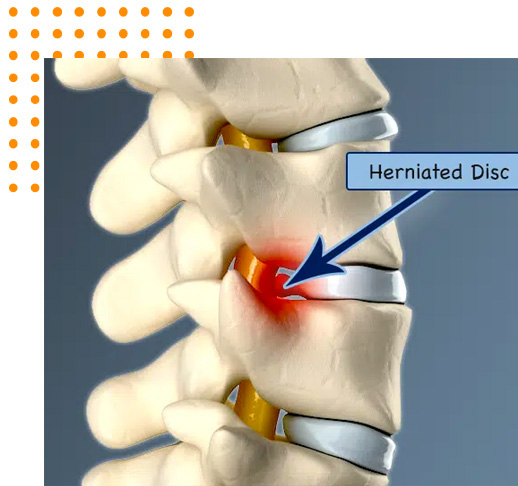Minimally Invasive
Spinal Surgery
Spine Surgeon in Kolkata
What is Minimally Invasive Spinal Surgery?
How is Minimally Invasive Spinal Surgery Performed?
MISS involves the use of advanced tools like endoscopes, tubular retractors, and imaging guidance systems such as fluoroscopy and computer-assisted navigation. These technologies allow the surgeon to make tiny incisions, usually less than an inch long, and perform the procedure with high accuracy. Unlike traditional open surgery, where large incisions are made to access the spine, MISS keeps muscle and tissue damage to a minimum. Once the surgery is complete, the incisions are closed, leaving minimal scarring. Due to this precise and controlled approach, patients can expect shorter hospital stays and quicker recoveries.


Conditions that Require Minimally Invasive Spinal Surgery
Degenerative Disc Disease
Herniated Disc
A herniated disc occurs when the soft inner core of the spinal disc pushes through its outer layer and presses on nearby nerves. MISS can remove the part of the disc that is causing pain, without the need for large incisions.
Spinal Stenosis
This condition occurs when the spinal canal narrows and compresses the spinal cord or nerves, resulting in pain, weakness, or numbness. MISS techniques can help relieve this pressure while preserving the integrity of the surrounding structures.
Spinal Deformities
Spondylolisthesis
Pinched Nerve (Radiculopathy)
Advantages of Minimally Invasive Spinal Surgery
- Smaller Incisions: The incisions made during MISS are typically less than an inch long, which leads to minimal scarring and a quicker healing process.
- Less Postoperative Pain: Because the muscles and tissues around the spine are left largely intact, patients experience less pain after surgery, reducing the need for pain medications.
- Quicker Recovery Time: Patients who undergo MISS often have shorter hospital stays and return to their normal activities sooner than those who undergo traditional open surgery.
- Lower Risk of Complications: MISS techniques reduce the risk of complications such as infection, blood loss, and damage to surrounding tissues.
- Minimal Scarring: The tiny incisions made during MISS result in much smaller scars, improving cosmetic outcomes and reducing the likelihood of long-term discomfort or irritation.
- Shorter Hospital Stay: MISS procedures often allow patients to go home the same day or within 24-48 hours, whereas traditional surgeries may require longer hospitalization.

Book an appointment today

Minimally Invasive Spinal Surgery for Specific Conditions
- Minimally Invasive Lumbar Decompression Surgery: This is used to treat lumbar spinal stenosis by removing a portion of the vertebra that is compressing the spinal cord or nerves, thus relieving symptoms.
- Minimally Invasive Spine Surgery for Scoliosis: In cases of scoliosis, MISS can be used to correct the curvature of the spine, offering a less invasive alternative to traditional scoliosis surgery.
- Minimally Invasive Spine Surgery for Spondylolisthesis: For patients with spondylolisthesis, MISS can help stabilize the spine and relieve pain by using smaller incisions and causing less trauma to the surrounding tissues.
- Minimally Invasive Spine Surgery for Pinched Nerves: In cases of radiculopathy or pinched nerves, MISS allows the surgeon to decompress the affected nerve, alleviating pain and improving function.
What to Know Before Getting Minimally Invasive Spinal Surgery

Eligibility
Not all spinal conditions can be treated with minimally invasive techniques. Your spine surgeon in Kolkata will assess your condition and determine whether you are a candidate for this type of surgery.

Risks and Benefits
Like any surgical procedure, MISS carries certain risks. These may include infection, blood loss, or complications related to anesthesia. However, the benefits—such as less pain, smaller scars, and quicker recovery—often outweigh these risks for eligible patients.

Recovery Process
While the recovery time is shorter than traditional surgery, it’s important to follow your doctor’s instructions carefully to ensure optimal healing. This may include physical therapy, rest, and avoiding heavy lifting for some time.

Preoperative Preparation
Your doctor may provide you with specific instructions to follow before the surgery, such as fasting, stopping certain medications, or undergoing diagnostic tests.
